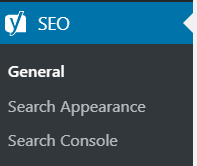
It struck me today that I might be fighting a one-man war against Magento.
That’s a weird place to be in. A copywriter who used to be into web development versus one of the biggest ecommerce CMS’s on the planet.
Talk about some David and Goliath shit right there.
It’s not really a place where I expected to be in, nor wanted to find myself.
And certainly not a couple years back when I actually considered the platform kind of alright and thought my year and a half of experience with it would be worth a damn.
But then came a project where it all came tumbling down and I had the worst month of my life career-wise.
For a platform that prided itself on versatility, flexibility and being robust, it sure ended up being a royal pain the ass.
I survived, but the web development side of my business didn’t.
In response, I wrote a ranty, garbled blog about Magento to vent, and then the remarkable thing happened.
People read it. A lot of people. People just like me. Web developers getting fucked by Magento.
Reading over the comments from developers and investors who’ve worked with the platform, it’s clear that my story isn’t by any means unique.
The scary part is that story is by no means the worst. In fact, I count myself among the fortunate ones.
I’ve heard from people who’ve wasted years of their live stuck with Magento. Others, who sunk tens of thousands of dollars into that garbage heap, only to eventually have to pull the plug and start anew.
The even sadder thing is that nothing has changed. Magento is still a big pile of dogshit.
I didn’t think of it much at first, but by the second and then third year of the same comments rolling onto my blog and the emails hitting my inbox, I knew this was bigger than just me. Maybe bigger than a couple dozen other angry devs.
It had to be bigger, because Magento was and still is one of the largest ecommerce platforms out there. It’s bigger because Magento wants this fight to be bigger.
When it hit me, that’s when I became an anti-Magento evangelist. It wasn’t entirely conscious, but any time I saw a question about it on a forum, a suggestion on a site, anything, I would try to answer it honestly.
And the honest truth is stay the fuck away from that CMS.
Some weeks, it feels more and more like a war that I didn’t start nor want to be part of, but because Magento is still out there, ruining lives, I’m stuck in this never-ending clusterfuck of a battle.
I find people talking about it on Reddit. Others asking about it on Quora.
Dear God, the people on Quora.
It’s remarkable how many asshat developers mostly out of South Asia or Eastern Europe try to lure people into that platform. They talk about it being the best, how it’s free, and then sneakily add a couple of spam or affiliate links into their post, suggesting they could make the damn site for them.
Fuck those gargoyles. All they’re doing is luring more people into the trap. I know how it goes.
It’s something like: “hey, let me build you a Magento site. Unlike Shopify, it’s free, so you’ll save money.” And then that entrepreneur ends up having to shit money fixing their site with that dumbass developer for the next five years.
Fuck those guys.
I’d say that 9 out of evert 10 questions I answer on Quora fall under the ecommerce section. And of those answers, at least half deal with Magento – or more specifically, warning developers and entrepreneurs as best I can about it.
In all, over the years, I’d estimate I’ve messages or replied to over a hundred people about the woes of Magento. Add the fifty or so people who commented on my blog and the thousand or so others who read it without commenting and I’ve warned probably close to 1200 people.
I’m just one person, and all things considered, my opinion and reviews of the platform might have affected close to a thousand people who were thinking of using it and then (hopefully) learned otherwise.
In terms of marketing cloud, that’s a lot of power. I wouldn’t say that I’m an influencer when it comes to steering people away from shitty ecommerce choices, but I’m down near as prolific.
Still, it seems like I’m out on the front line all alone. I’m the only one. Why aren’t there other people like me trying to fix ecommerce, warn the world and keep people safe?
Okay, scratch that. No more maybes. I’m fighting this war. People have to know about the evils of Magento before it breaks them.




